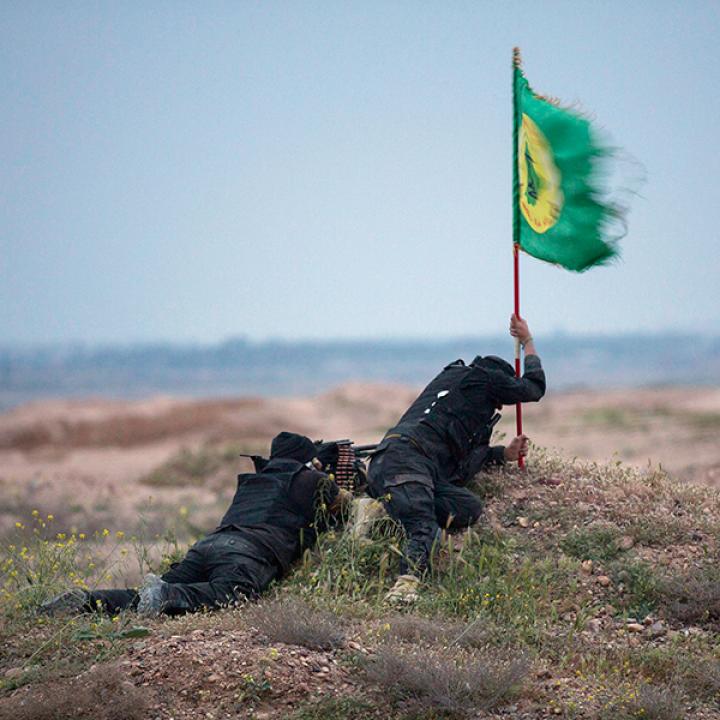

Although Iran's influence in Iraq remains limited by various political, religious, and economic factors, the rise of ISIS has created new opportunities for Tehran to present itself as the country’s savior.
The following is an excerpt from a new chapter in the "Iran Primer" series, published by the U.S. Institute of Peace. To read the full report, download the PDF.
Despite significant investments to expand its influence in Iraq, Iran's efforts have yielded only mixed results. The goal of Shiite unity in Iraq has proven elusive. Relations among its Iraqi clients have frequently been fraught with tensions and violence, and it has spent much time and effort mediating among them. Tehran's meddling in Iraqi politics has sometimes been a liability, stoking a nationalist backlash against Iran and its local allies.
But the rise of ISIS and Iran's quick response with arms, military support, and advisors after the fall of Mosul (in contrast to the comparatively slow and restrained U.S. response) has created opportunities for Iran to portray itself as Iraq's savior. Its conduct since then has boosted its standing in the eyes of many Iraqis.
Yet Iran has occasionally overplayed its hand. Officials from Qassem Soleimani to presidential advisor and former intelligence minister Ali Younesi have boasted of Iran's influence in Iraq, provoking a backlash among Iraqis. And its preferred military approach -- the reliance on the PMUs -- has not yielded decisive military results, while contributing to the sectarian polarization of Iraqi society. U.S. reticence and restraint, however, are likely to ensure that Iran continues to play a major military role in Iraq -- at least as long as ISIS remains an imminent threat, and Iraq proves unable to deal with that threat on its own.
TRENDLINES
* Geography, politics, economics and religion ensure that Iran will retain significant influence in Iraq. There will always be Iraqis willing to partner with Iran for pragmatic, ideological, or mercenary reasons, especially as long as Iran is seen as a rising power and the leader of the region's most cohesive axis.
* The most powerful constraints on Iranian influence in Iraq remain Iraqi nationalism, Iran's own policies, and its sometimes high-handed behavior. But without a determined U.S. effort to counterbalance the Iranian presence, Iran will remain the most influential outside power in Iraq.
* Over the long-term, Iraq's relations with Iran will depend largely on its security situation (particularly the fate of ISIS), the political complexion of its government, and the type of long-term relationship it forges with the United States and its Arab neighbors...
Iran Primer


